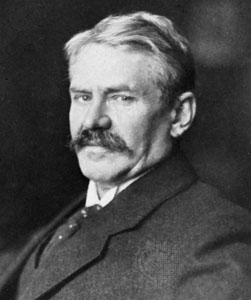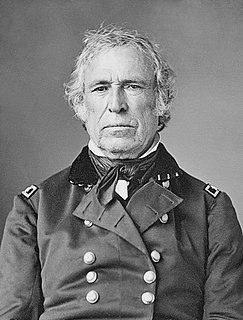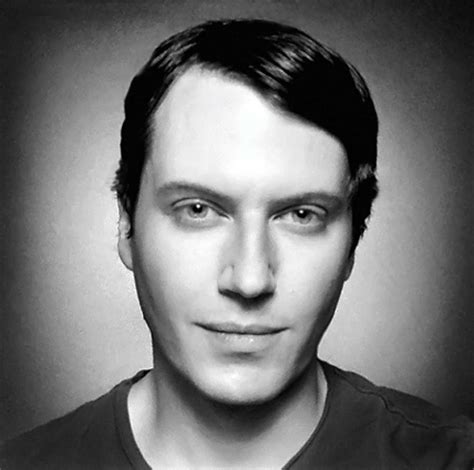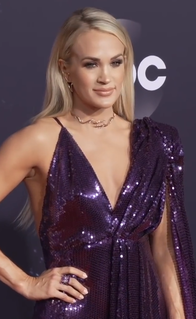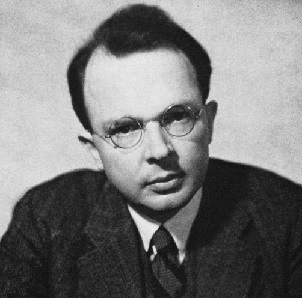Top 1200 Ethics And Morals Quotes & Sayings - Page 3
Explore popular Ethics And Morals quotes.
Last updated on November 8, 2024.
Ethics has not only to do with mankind but with the animal creation as well. This is witnessed in the purpose of St. Francis of Assisi. Thus we shall arrive that ethics is reverence for all life. This is the ethic of love widened universally. It is the ethic of Jesus now recognized as a necessity of thought...Only a universal ethic which embraces every living creature can put us in touch with the universe and the will which is there manifest.
Today it is considered as exaggeration to proclaim constant respect for every form of life as being the serious demand of a rational ethic. But the time is coming when people will be amazed that the human race existed so long before it recognized that thoughtless injury to life is incompatible with real ethics. Ethics is in its unqualified form extended responsibility to everything that has life.
It is unreasonable to expect science to produce a system of ethics-ethics are a kind of highway code for traffic among mankind-and the fact that in physics atoms which were yesterday assumed to be square are now assumed to be round is exploited with unjustified tendentiousness by all who are hungry for faith; so long as physics extends our dominion over nature, these changes ought to be a matter of complete indifference to you.
All pantheism must ultimately be shipwrecked on the inescapable demands of ethics, and then on the evil and suffering of the world. If the world is a theophany , then everything done by man, and even by animal, is equally divine and excellent; nothing can be more censurable and nothing more praiseworthy than anything else; hence there is no ethics.
Anytime a member of Congress wants to travel abroad - which we do from time to time as part of our official duties - we are required to check with the House Committee on Ethics as to whether the trip follows the ethics rules by which federally elected officials are bound. Not so with Supreme Court justices.
Thus we seem to be on the verge of an expansion of welfare economics into something like a social science of ethics and politics: what was intended to be a mere porch to ethics is either the whole house or nothing at all. In so laying down its life welfare economics may be able to contribute some of its insights and analytical methods to a much broader evaluative analysis of the whole social process.
To me, it really seems visible today that ethics is not something exterior to the economy, which, as technical matter, could function on its own; rather, ethics is an interior principle of the economy itself, which cannot function if it does not take account of the human values of solidarity and reciprocal responsibility.
But does Man have any 'right' to spread through the universe? Man is what he is, a wild animal with the will to survive, and (so far) the ability, against all competition. Unless one accepts that, anything one says about morals, war, politics, you name it, is nonsense. Correct morals arise from knowing what man is, not what do-gooders and well-meaning old Aunt Nellies would like him to be. The Universe will let us know - later - whether or not Man has any "right" to expand through it.
A code of ethics cannot be developed overnight by edict or official pronouncement. It is developed by years of practice and performance of duty according to high ethical standards. It must be self-policing. Without such a code, a professional soldier or a group soon loses identity and effectiveness. Once we know our job, have a genuine code of ethics, and maintain unquestioned personal integrity, we have met the first and most demanding challenge of leadership.
The Bible is the best of books, and I wish it were in the hands of every one. It is indispensable to the safety and permanence of our institutions. A free government can not exist without religion and morals, and there cannot be morals without religion. Especially should the Bible be placed in the hands of the young. It is the best school book in the world. I would that all our people were brought up under the influence of that holy book.
Marriage and parenting are the two strongest vows anyone will ever make. When you see these commitments being carelessly discarded, you can be certain that the ethics of that generation have been abandoned. ... What our society needs is a good dose of biblical ethic from God's people - the kind of ethic that requires us to keep our word no matter what the costs. Situational ethics have so shaped our society that even God's people have lost the concept of absolutes when it comes to keeping our word.
I started my first year at college on May 10 2015, and dropped my first video, 'Black Box' on the same day, it's pretty weird. I'm studying Philosophy and Ethics, Law and Music. Ethics helps a lot with music. Philosophy gives you a great perspective on things; it makes you think deeper about what you're saying.
To ask about the 'source' of rights or morals assumes an erreous conclusion. To ask about the source of morals is to assume that such a source exists. As if it existed outside of human constructed systems. The 'source' is the human ability to learn from experience and to entrench rights in our laws and in our consciousness. Our rights come from our long history of wrongs.
Ethics and power are separate. Ethics and morality. I think life would be miserable if there weren't some kind of code that people operated by, but history is full of many, many people who have gotten power by very unethical means, and people who were very ethical, who get no power, people who have the most brilliant, lovely, wonderful, nice intentions and bring about horrible things in the world because they don't know how to play the power game.
Kant's description of most ethical duties reads more like a description of moral virtues and vices. Once we see this, we see that Kantian ethics is indeed a kind of virtue ethics, and that it does not "divide the heart from the head" (to anticipate one of your later questions) but instead recognizes the deep truth that reason and emotion are not opposites.
The meaning that we are seeking in evolution is its meaning to us, to man. The ethics of evolution must be human ethics. It is one of the many unique qualities of man, the new sort of animal, that he is the only ethical animal. The ethical need and its fulfillment are also products of evolution, but they have been produced in man alone.
It's just that for so many people that I know, Christianity's this matter of... it has everything to do with morals. Christianity is a religion about morals. And they will even talk about Jesus. And they will say kids need to know about Jesus so they won't smoke, drink, or dance, or go with girls that do, and all that kind of thing. And I kinda go, 'That's not why people need to know about Jesus. The only reason - The only possible excuse for talking about Jesus is because we need a Savior.'
The seventh rule of the ethics of means and ends is that generally success or failure is a mighty determinant of ethics. The judgment of history leans heavily on the outcome of success or failure; it spells the difference between the traitor and the patriotic hero. There can be no such thing as a successful traitor, for if one succeeds he becomes a founding father.
All the world’s major religions, with their emphasis on love, compassion, patience, tolerance and forgiveness, can and do promote inner values. But the reality of the world today is that grounding ethics in religion is no longer adequate. This is why I believe the time has come to find a way of thinking about spirituality and ethics that is beyond religion.
How deep a wound to morals and social purity has that accursed article of the celibacy of the clergy been! Even the best and most enlightened men in Romanist countries attach a notion of impurity to the marriage of a clergyman. And can such a feeling be without its effect on the estimation of the wedded life in general? Impossible! and the morals of both sexes in Spain, Italy, France, and. prove it abundantly.
What good men most biologists are, the tenors of the scientific world - temperamental, moody, lecherous, loud-laughing, and healthy. Your true biologist will sing you a song as loud and off-key as will a blacksmith, for he knows that morals are too often diagnostic of prostatitis and stomach ulcers. Sometimes he may proliferate a little too much in all directions, but he is as easy to kill as any other organism, and meanwhile he is very good company, and at least he does not confuse a low hormone productivity with moral ethics.
Faith drives a wedge between ethics and suffering. Where certain actions cause no suffering at all, religious dogmatists still maintain that they are evil and worthy of punishment. . . . And yet, where suffering and death are found in abundance their causes are often deemed to be good. . . . This inversion of priorities not only victimizes innocent people and squanders scarce resources; it completely falsifies our ethics.
A minimal level of sportsman ethics afield is mandated by written law. Beyond that, say, when an action is legal but ethically questionable, or when (as Aldo Leopold long ago pointed out) no one is watching, hunter ethics is an individual responsibility. As the existentialists would have it, we determine our own honor minute by minute, action by action, one decision at a time.
...mathematics is distinguished from all other sciences except only ethics, in standing in no need of ethics. Every other science, even logic, especially in its early stages, is in danger of evaporating into airy nothingness, degenerating, as the Germans say, into an arachnoid film, spun from the stuff that dreams are made of. There is no such danger for pure mathematics; for that is precisely what mathematics ought to be.
Robert Torricelli, a powerful fund-raiser who helped raise more than $100 million for the Democratic party, took inappropriate gifts from a businessman, including an $8,000 gold Rolex watch, for which he was severely admonished by the Senate Ethics Committee in July. To recap: raising $100 million in contributions from gigantic corporations - ethical; taking a watch - unethical. That's the Senate Ethics Committee, an oxymoron since 1974.
I took ethics classes in college, and it always amazes me how they [tabloids] will blatantly say something that I did not say, in quotation marks. The first thing that we learned in ethics is that you better have it right. If you're putting quotation marks around something, it better be exactly what that person said.
Who you really are, is an immaterial soul and the body is an external thing that's sort of an encrustation your soul. So this has important implications for Plotinus' ethics, because his ethics are basically all about encouraging us to turn away from the body and turn towards these higher principles, so universal soul, universal intellect and ultimately the One.
To think the welfare and the goodness of the next generations is indeed a good ethics, but there is much greater ethics than this: To think the welfare and the goodness of the current generations, the very people of now! The reason is simple: Future may not exist, it is only a possibility, but the people of now are not possibility, they are here!
[The church] is in its major part an opponent still of progress and improvement in all the ways that diminish suffering in the world, because it has chosen to label as morality a certain narrow set of rules of conduct which have nothing to do with human happiness; and when you say that this or that ought to be done because it would make for human happiness, they think that has nothing to do with the matter at all. "What has human happiness to do with morals? The object of morals is not to make people happy.
The notion of ambiguity must not be confused with that of absurdity. To declare that existence is absurd is to deny that it can ever be given a meaning; to say that it is ambiguous is to assert that its meaning is never fixed, that it must be constantly won. Absurdity challenges every ethics; but also the finished rationalization of the real would leave no room for ethics; it is because man's condition is ambiguous that he seeks, through failure and outrageousness, to save his existence.
Christians believe that God created man, and humanists believe that man invented God. But whichever way you look at it, we're brothers and sisters. Either we're brothers and sisters because we're children of God, or because we've banded together to invent God. So the ethics of the humanist and the ethics of some Christians are very similar. And we don't want to create divisions between humanists and Liberation Theologians, any more than we want between the New Worker and the Trots. It's not helpful.
I am a Christian according to my conscience in belief,in purpose and wish;Mnot of course by the orthodox standard. But I am content, and have a feeling of trust and safety.
The Machiavellian mind and the merchant mind are at one in their simple faith in the power of segmental division to rule all--in the dichotomy of power and morals and of money and morals.
The thinking man must oppose all cruel customs no matter how deeply rooted in tradition or surrounded by a halo. We need a boundless ethics which will include the animals also. My life is full of meaning to me. The life around me must be full of significance to it. If I want others to respect my life, then I must respect the other life I see however strange it may be to mine. Ethics in our western world has hitherto been largely limited to the relation of man to man... but that is a limited ethics.
I came to office promising major ethics reform to end the culture of self-dealing. And today, that ethics reform is a law. While I was at it, I got rid of a few things in the governor's office that I didn't believe our citizens should have to pay for. That luxury jet was over-the-top. I put it on eBay.
My view of ethics and of its priority is connected to my view that we are fundamentally relational beings - both the product of human interactions, as well as committed as part of the expression of our own humanity to various social involvements. I see ethics as having two places in the maintenance of these relational activities - first as providing the basic coinage of our interactions qua humans and second as mediating the various roles we assume as humans.
People have their morals, but morals aren't concrete. People think because I'm a Muslim that I pray five times a day, but you're never going to see that on a day-to-day basis. People fluctuate. To me, that was the most specific way to put it, the best way to be like, "I listen to this music, but it's the most violent music on the planet." But I like it, and to make up for it, I don't say the cuss words. That's how I get away with it.
We need to employ a secular approach to ethics, secular in the Indian sense of respecting all religious traditions and even the views of non-believers in an unbiased way. Secular ethics rooted in scientific findings, common experience and common sense can easily be introduced into the secular education system. If we can do that there is a real prospect of making this 21st century an era of peace and compassion.
Ethics occupies a central place in philosophy because it is concerned with sin, with the origin of good and evil and with moral valuations. And since these problems have a universal significance, the sphere of ethics is wider than is generally supposed. It deals with meaning and value and its province is the world in which the distinction between good and evil is drawn, evaluations are made and meaning is sought.








